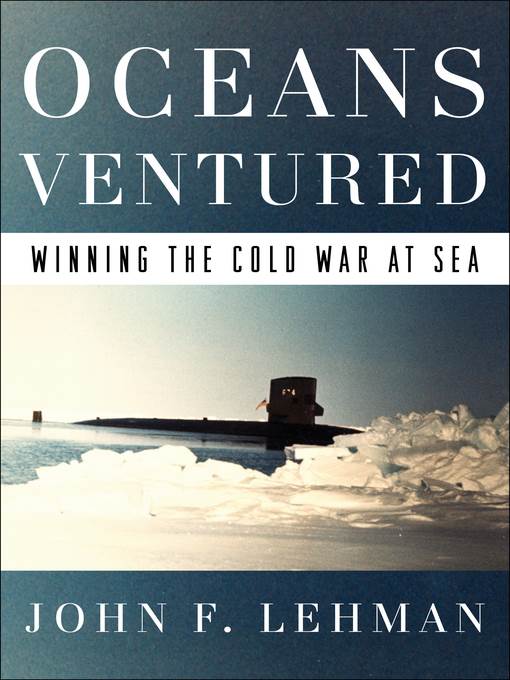
Oceans Ventured
Winning the Cold War at Sea
کتاب های مرتبط
- اطلاعات
- نقد و بررسی
- دیدگاه کاربران
نقد و بررسی

March 26, 2018
In this incisive political and strategic analysis, Lehman, secretary of the Navy from 1981 to 1987, describes the “naval rearmament and maritime superiority” strategy that he argues decided the Cold War. By 1980, Lehman writes, the U.S.S.R. had mounted a comprehensive challenge to American naval supremacy—a challenge unmet by Jimmy Carter’s policy of substituting “soft power and diplomacy” for armed force. Incoming president Ronald Reagan, determined to counter the Soviet initiative, began a massive new exercise, Ocean Venture, involving forward operations in the Norwegian Sea and the Atlantic, to send a message of deterrence. The Soviet government perceived the exercise as a threat and responded with its own programs of modernization, maneuvers, and “surveillance and harassment.” But economic difficulties rendered the Soviet Union unable to close the “significant” and “widening” technological and operational gaps with a revitalized U.S. Navy. After 1983, Lehmann asserts, America’s maritime strategy spurred the Soviet Union into military overextension—contributing to the regime’s collapse—without a shot fired. Lehman makes a difficult-to-ignore case for sea power’s potential to “prevent having to go to war at all.” This well-argued work will have significant appeal for those interested in national security issues.

May 1, 2018
Former Secretary of the Navy Lehman (On Seas of Glory: Heroic Men, Great Ships, and Epic Battles of the American Navy, 2001, etc.) unfolds the Ronald Reagan-era strategy to reclaim United States dominance on the high seas and contain the Soviet fleet.In the aftermath of World War II and the early years of the Cold War, writes the author, the U.S. Navy was devalued in favor of the Air Force even as the fleet was required to carry nuclear weapons, which "required much additional manpower and shipboard space." Even before Reagan took office in 1981, he had been promising a program of "naval rearmament and maritime superiority." After winning the election, he assembled a team, including Lehman, to bring this program into being. Among the author's innovations was a push to assert an American and NATO presence in the Arctic and "the icy bastions that the Soviet sailors considered their domain." Exercises involving U.S. Marines and other Allied forces in the far north brought the point home, to the consternation of the Kremlin. Toward the end of Reagan's first term, exercises with the South Korean military on an amphibious landing further agitated the Russians, who tried to catch up but could not. It helped that Reagan opened up the treasury for a military spending spree that the Soviets could not afford, but the arrival of Mikhail Gorbachev to the scene was a critical factor; in time, the Soviets began to retreat from distant oceans, particularly lessening their presence in the Mediterranean. Lehman sounds downright Reagan-esque when he writes, "if the Americans were going to press up against Soviet coasts, they had better draw back and circle their wagons." For the most part, though, this is a matter-of-fact, evenhanded look at a largely overlooked component in the eventual decline and collapse of the Soviet Union.Valuable for students of naval strategy and geopolitics as well as of Cold War history.
COPYRIGHT(2018) Kirkus Reviews, ALL RIGHTS RESERVED.

June 1, 2018
Lehman (On Seas of Glory) seeks to explain how Ronald Reagan and his officials changed defense strategy to win the Cold War. There is some brief history of post-World War II diplomacy, but the bulk of the text is a chronological retelling of 1980s diplomacy and naval operations. Lehman's work reads more like personal memoirs of his time as secretary of the navy during the Reagan years. Based on his former position, his latest work has a bias in favor of 1980s Republicans and the Reagan administration. Lehman dismisses Democrats and "leftists" while praising favored colleagues. He ultimately blames the reduction of the U.S. Navy for several global challenges facing America today, making a persuasive argument. There are frequent acronyms and detailed descriptions of military exercises and operations; abundant photos assist in learning about the various individuals, ships, and aircraft mentioned throughout. VERDICT For anyone studying the late Cold War, although the favoritism can be a turn-off for anyone who isn't a staunch Reagan supporter.--Matthew Wayman, Pennsylvania State Univ. Lib., Schuylkill Haven
Copyright 2018 Library Journal, LLC Used with permission.

























دیدگاه کاربران